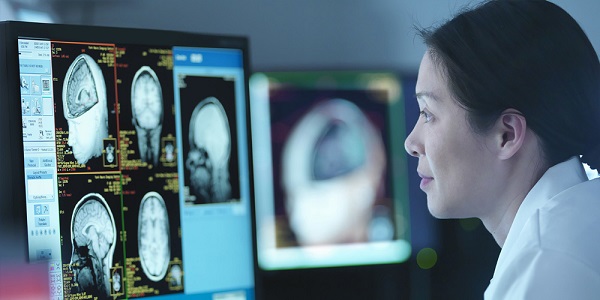IBM, Cleveland Clinic, And Hartree Center Collaborate To Advance Healthcare Through Advanced Computing

Cleveland Clinic, IBM, and Hartree Center have partnered to advance healthcare and life sciences through advanced computing technologies, including AI and quantum computing.
The partnership brings together an international team of researchers, physicians, and scientists from various disciplines around the globe.
“The research teams will leverage high performance and quantum computing to advance life sciences, with the goal of improving healthcare and accelerating new treatments for patients around the world. Cleveland Clinic London will be a central link between innovative clinical care in the UK and Cleveland Clinic’s global footprint.” said Cleveland Clinic chief research information officer Lara Jehi.
Epilepsy is a chronic noncommunicable disease of the brain that affects people of all ages. More than 50 million people worldwide suffer from this neurological disease, with more than 80% of epilepsy patients living in low or middle-income countries.
According to research, around 70% of people living with epilepsy can live seizure-free with proper diagnosis and treatment, however, this is hardly the case with nearly 75% of patients that live in low-income countries not getting the treatment they need.
Cleveland Clinic has one of the most comprehensive programs in the world for the diagnosis and treatment of epilepsy. Now with the newly formed alliance with tech giant IBM, and the Science and Technology Facilities Council (STFC) at the Hartfree Center, researchers from Cleveland Clinic aim to use advanced technologies to study epilepsy and the impact of hospital interventions.
The researchers will kick off the new collaboration with two projects, led by Dr. Jehi, an epilepsy researcher, and Charles Knowles, Ph.D., Chief Academic Officer at Cleveland Clinic London, working closely with teams from IBM and Hartree Centre.
The first project, led by Dr. Knowles, will use advanced AI models to analyze the impact of care on patients at Cleveland Clinic London. The researchers will focus on how the common hospital procedures impacted the patient's overall quality of life and health. The goal of this project is to gather valuable insights in how to enhance patient outcomes.
A key component of this project is using clinical and advanced imaging data provided by Cleveland Clinic London BioResource, a repository of donated samples and health data that can be used for scientific research.
 The data from these Biorepositories will be used to develop larger AI models that can integrate multiple types of data for analysis across different health conditions.
The data from these Biorepositories will be used to develop larger AI models that can integrate multiple types of data for analysis across different health conditions.
The second project, led by Dr. Jehi, aims to utilize quantum computing to analyze extensive data sets and identify molecular characteristics in the body that more accurately predict surgical outcomes in epilepsy patients. The primary goal of this project is to identify novel biomarkers that can be useful in customizing treatment plans to improve patient outcomes.
Dr Jehi was one of the featured speakers at the third Economist Impact Commercializing Quantum Global 2024 conference in London last week. Her project of using quantum computing for the discovery of biomarkers was highlighted as an example of the power of quantum computing in developing precision medicine.
AI is playing a transformative role in advancing healthcare across various domains, including research on the human brain. In May, a team of researchers from Harvard and Google collaborated to publish an astonishingly detailed 3D map of the human brain. Such breakthroughs can bring valuable insights into the mysteries of the human brain and help unlock better methods to diagnose and treat conditions and diseases like Epilepsy.
Related Items
How AI Will Impact the Drug Discovery Pipeline
The Future of Healthcare is Data-driven
John Snow Labs Achieves Record Growth with Advanced AI Models in Healthcare











